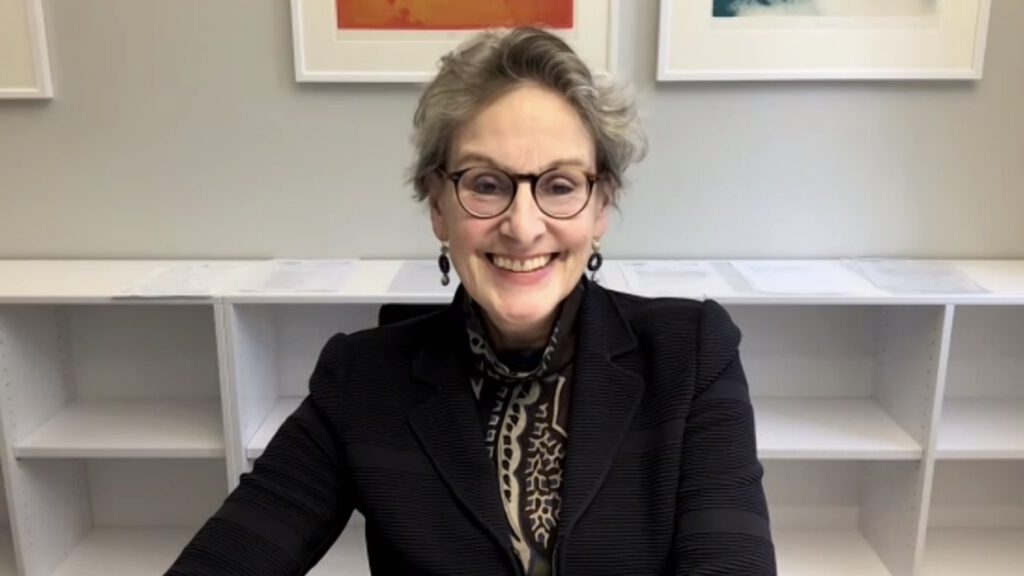On December 16, Ursula M. Staudinger, spokeswoman for the Leopoldina Commission on Demographic Change, and other authors presented the Report on Tomorrow’s Science “Ageing and the Life Course. Research for Longer Lives”. For several years, seven leading scientists from different aging disciplines worked together on the future report under Staudinger’s leadership. This is dedicated to the central question: What research can help us to cope well with the challenges of longer life and demographic change?
“Alongside climate change, demographic change is one of the central challenges of the 21st century,” emphasized Staudinger in her opening statement at the online event of the German National Academy of Science Leopoldina with around 100 participants. Average life expectancy has increased by around 40 years over the past 150 years. In addition, life courses have become more diverse. These developments contribute to the fact that the scientific field of aging and life course research has gained significantly in importance. It is important to shape the “years gained” in such a way that the quality of life, productivity and innovative capacity of a society of longer lives are maintained and further developed.
Germany has some catching up to do
The increase in average life expectancy is an achievement of socio-cultural development. In contrast to other species, humans have the ability to change their own development and the aging process. So human aging is not only influenced biologically. Rather, the aging process arises from the continuous interaction between biology, individual decisions and lifestyles, as well as the socio-cultural context. The biopsychosocial model developed by Staudinger illustrates the interplay between context, person and organism.

This finding also underscores the need for interdisciplinary research that brings together findings from individual disciplines in order to enable the successful management of demographic change. According to the Report on Tomorrow’s Science, Germany is currently still lagging behind its potential, despite extensive research, and compares poorly with other countries such as France, the Netherlands, the USA and Great Britain.
Interdisciplinary research is needed
The authors of the future report point out that the predominant funding topics for aging research in Germany are diseases and their molecular basis as well as care and technical assistance systems in old age. However, in order to be able to answer key research questions, other research areas must be given greater consideration and all relevant disciplines must be included in funded projects. “The inclusion must not stop at a juxtaposition of the disciplines but must take the step towards an equal cooperation in order to raise the progress of knowledge in aging and life course research to the next level,” said Staudinger. “So far there has been no will for a broad-based aging research agenda.”
Social, behavioral and human sciences are also much less represented in German aging and life course research than in Great Britain, Sweden or the Netherlands, for example. Strategic and programmatic funding in the form of centers, programs, research infrastructure and further training measures is of great importance for interdisciplinarity. The authors of the report spoke out in favor of a competence network – building on existing centers – with a central coordination office and wanted politicians to send positive signals for a national research strategy in the field of aging and life course research.
Corona as an amplifier
In addition to the Report on Tomorrow’s Science, an extra supplement identified challenges that arise from the coronavirus pandemic for aging and life course research. The pandemic revealed both the strengths and weaknesses of the health system and further enhance the topics mentioned in the future report. For example, people with previous illnesses that are more common in old age are exposed to a higher risk of death. The authors emphasize that the challenges facing society as a result of demographic change, climate change and currently COVID-19 must be seen more closely in context in the future and addressed with even more determination.
The following authors of the report spoke at the event:
- Professor Josef Ehmer, Department of Economic and Social History, University of Vienna, Austria; International Research Center “Work and Human Lifecycle in Global History”, Humboldt-Universität zu Berlin, Germany
- Professor Alexia Fürnkranz-Prskawetz (Leopoldina member), Institute of Statistics and Mathematical Methods in Economics, Vienna University of Technology, Austria; Wittgenstein Centre for Demography and Global Human Capital, Vienna, Austria
- Professor Gerd Kempermann (Lead), German Center for Neurodegenerative Diseases Dresden; Center for Regenerative Therapies Dresden, Dresden University of Technology
- Professor Karl Ulrich Mayer (Leopoldina member), Max Planck Institute for Human Development, Berlin;
Yale University, New Haven, USA - Professor Cornel Sieber, Institute for Biomedicine of Ageing, Friedrich-Alexander University Erlangen-Nürnberg
- Professor Johannes Siegrist, Institute for Medical Sociology, Heinrich Heine University Düsseldorf
- Professor Ursula M. Staudinger (Leopoldina member, Spokeswoman Leopoldina Standing Committee Demographic Change, Lead), Dresden University of Technology
